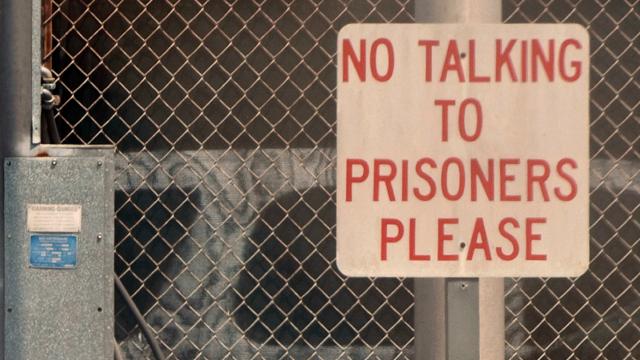A report published on Monday by the Prison Policy Initiative highlights the predatory practices of prison technology companies in U.S. city- and county-run jails, where inmates and their families continue to pay “astronomical rates” to place phone calls that would cost average consumers virtually nothing.
While the cost of placing a call from a state prison has declined steadily over the last decade, nationwide efforts at reform have done little to curb the outlandish costs in local jails, which are occupied by a profusion of poverty-stricken pretrial defendants — prisoners who’ve not been convicted of the crime for which they’ve been imprisoned, but who are unable to make bail.
According to the study, the average cost of placing a phone call from a local jail is over three times that of a call placed from a state prison. However, some cases are more extreme than others. In Illinois jails, for instance, the cost of placing a call is 52 times higher than in the state’s prisons. In Arkansas, the cost is only three times higher, but a 15-minute call can cost upwards of $35.
In a 2017 speech, Texas Supreme Court Chief Justice Nathan Hecht noted that roughly 75 per cent of people in Texas jails had not been convicted, according to the Texas Tribune. The average cost of a 15-minute call from a Texas jail is $9, as opposed to $1 per minute in a state prison.
The exorbitant cost of inmate calls has long been a target of criminal justice reform advocates who attribute the undue rates to the predatory practices of inmate call providers. According to the study, these practices include imposing hidden fees intended to circumvent regulations that cap rates, or what prisoners and their families pay per minute per call.
These include “fees to open an account, have an account, fund an account, close an account, get a refund, [or] receive a paper bill,” the study’s authors write.
In 2015, the Federal Communications Commission (FCC) noted that extra fees can “increase the cost of families staying in touch by phone with loved ones who are incarcerated by as much as 40%.”
The study additionally notes how Securus, one of the largest prison phone providers, goes the extra mile to push families of prisoners to use its phone system in the least cost-efficient manner:
Rather than encourage families to create pre-paid accounts—or to add funds to a depleted account—Securus instead steers people to pay for each call individually. By emotionally manipulating family members into paying for single calls rather than creating accounts, the companies drive up fee revenue. Other services — such as charging families to listen to voicemails from their loved ones in jail — similarly manipulate consumers and increase revenue from fees. Neither public safety nor consumer “convenience” benefit from these unnecessary but highly profitable call products.
The study attributes the price disparities between jail versus prison calls, in part, to the phone companies’ understanding that local officials who run jails are characteristically vulnerable to predatory contracts. The report notes, for example, that most jails are unable to afford expensive consultants to negotiate telecommunications contracts.
“Local jails are not significantly more expensive to serve than state prisons,” the report states. “Rather, phone providers have learned how to take advantage of the inherent weaknesses in how local jails, as opposed to state prisons, approach contracting.”
But prison phone providers also incentivise high rates by offering jail facilities a percentage of their revenue in the form of “commissions.” As the Prison Policy Initiative explains:
Prison phone companies started offering commissions to jails and prisons in order to win contracts from companies that didn’t offer them. What they didn’t expect was that sheriffs would become dependent on this new income. The companies were forced into an “arms race,” competing to give away more and more of their revenue from phone calls; the proffered commissions inched ever closer to 100%.
Another egregious example is the relationship between prison-phone and money-transfer companies, which, as the report details, prey primarily on the families of prisoners who live in poverty. To wit, payments to jail-phone accounts by people who don’t have bank accounts are typically made through money transfers with companies such as WesternUnion or MoneyGram, which have increased the cost of transferring funds to certain prison phone companies, for which they receive a kickback.
According to the report, WesternUnion and MoneyGram both charge families forced to rely on Securus a $17 fee, while payments to other providers may cost only half as much. “The explanation is that Western Union and MoneyGram are collecting a portion of this fee on behalf of the phone providers, something that the FCC intended to prohibit,” the report states, adding: “Families and facilities would be right to call this hidden fee a form of exploitation.”
Since jails don’t typically hold prisoners for very long, the report concludes, it’s more difficult for families impacted by the high costs to exert political pressure on administrators who negotiate the phone contracts. “Many state legislatures—and by extension the Public Utility Commissions and other regulatory and civil society organisations—pay very little attention to individual jails or the state’s aggregated jail policy,” it says.
Read the complete Prison Policy Institute report here.
